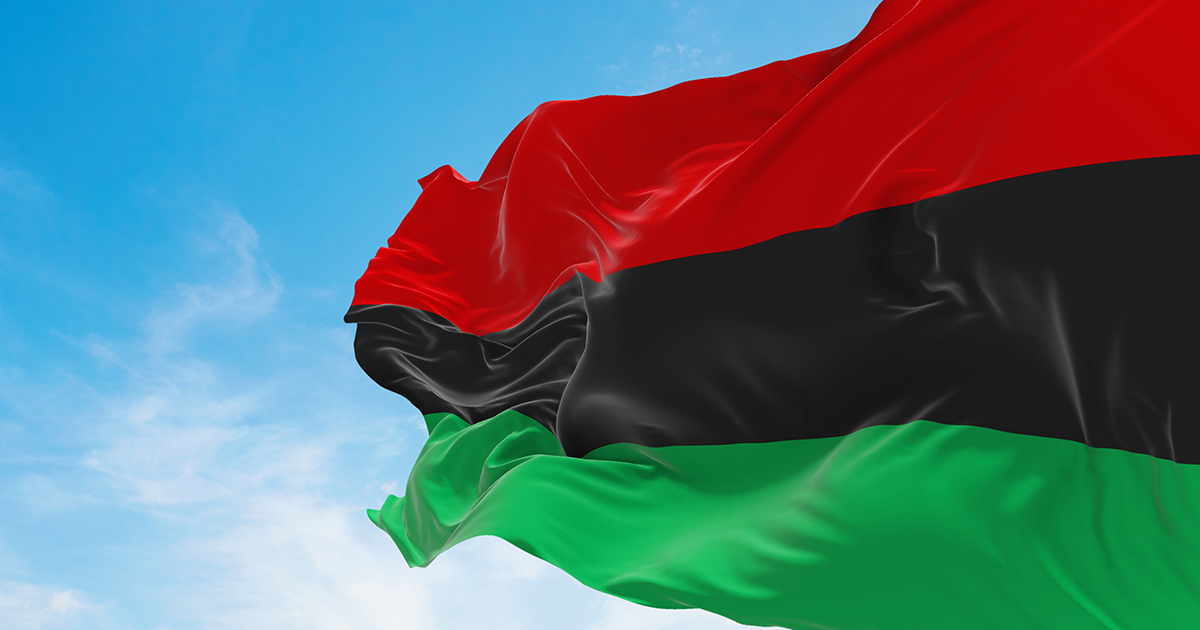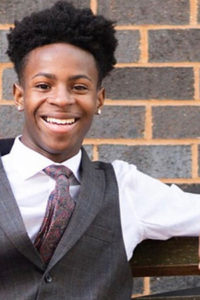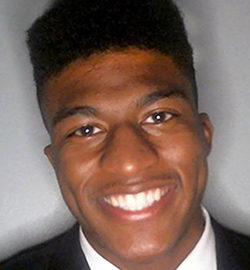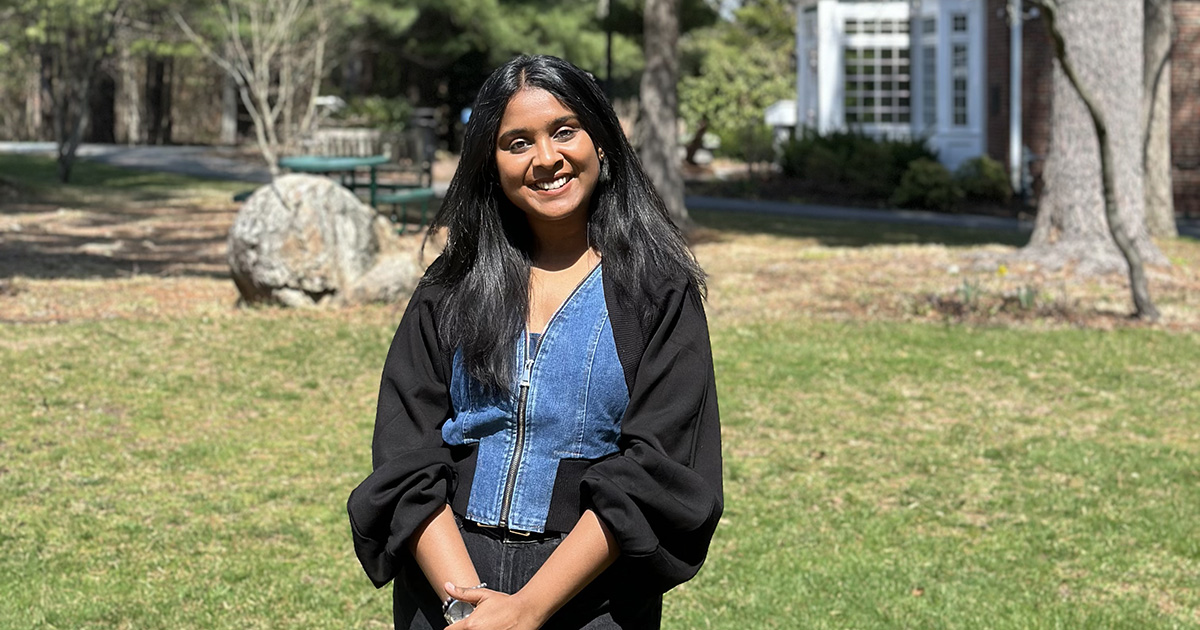Reflections on Juneteenth from Babson Students

On June 19, 1865, Union General Gordon Granger arrived in Galveston, Texas to inform enslaved African Americans that the Civil War was over, putting into effect President Abraham Lincoln’s Emancipation Proclamation and freeing all slaves.
That day, Juneteenth, has been marked for decades as a day of celebration and freedom. In 2021, President Joe Biden signed legislation declaring Juneteenth a federal holiday. This year, Babson College is commemorating Juneteenth with a virtual ceremony on Friday, June 17, and observing the holiday on Monday, June 20.
Register to attend Babson College’s Juneteenth commemoration June 17.
We asked Babson students to reflect on Juneteenth and share what it means to them and how they choose to honor the holiday.
Day of Reflection and Education
Demarre Johnson ’24, Arthur M. Blank Scholar:

Demarre Johnson ’24
“On the surface, Juneteenth—also known as Freedom Day—marks the end of slavery in the United States. Yes, the day in 1865 is about emancipation and the end of slavery. But Juneteenth, the holiday, is so much more than that.
“Growing up in the South, my family has always recognized and celebrated Juneteenth. As I have watched Juneteenth expand beyond the South, especially over the last 10 years or so, I have been so grateful to see how it’s been embraced by the Black community throughout the country. The struggle is real—and the struggle is not removed from the holiday—but what I have always appreciated is that it’s not centered on what we have endured, but on our capacity to love ourselves and each other through it all.
“Juneteenth is a time of reflection to me, a time to recognize the oppressive past, acknowledge the progress created and the progress to come.
“For people not like me, Juneteenth should be commemorated as a time of education and remembrance where people learn the oppressive harm caused to the Black community from slavery, and how we can move past it to advance as one race, the human race. It’s easy to focus on the ongoing uphill battles Black people have had to climb in the United States—and continue to climb—but at the core the purpose of Juneteenth is to uplift our community.”
‘One of the Greatest Leaps Forward’
Jeffery Oyegue ’25, Posse Scholar:

Jeffery Oyegue ’25
“I am not sure what Juneteenth means to me, but I do know what it would mean to Fredrick Douglass. I once read Fredrick Douglass’ autobiography, and my favorite paragraph was titled, ‘What to the Slave is the Fourth of July.’ In this paragraph, Douglass wrote, ‘To him, your celebration is a sham; your boasted liberty, an unholy license; your national greatness, swelling vanity; your sounds of rejoicing are empty and heartless; your denunciation of tyrants, brass fronted impudence; your shouts of liberty and equality, hollow mockery; your prayers and hymns, your sermons and thanksgivings, with all your religious parade and solemnity, are, to Him, mere bombast, fraud, deception, impiety, and hypocrisy—a thin veil to cover up crimes which would disgrace a nation of savages. There is not a nation on the earth guilty of practices more shocking and bloody than are the people of the United States, at this very hour.’
“Despite that, Douglass still had his son serve as a sergeant major in the Union during the Civil War. Even though America lied to Douglass, and enslaved him, he still chose to fight for the dream that America could be for Douglass. I think Juneteenth was one of the greatest leaps forward toward successfully achieving that dream as a nation.”
Remember Those Who Fought
Madison Spence ’23, Justice, Equity, Diversity & Inclusion (JEDI) Student Leader:

Madison Spence ’23
“Juneteenth is not just like any other day. It highlights the time that slaves were free from bondage and free from the trauma of being abused at the hands of the oppressors. Although there are still forms of modern-day slavery, it is important to celebrate this day that our ancestors were free to truly build their lives, families, and legacies in a more sanctioned capacity. June 19, 1865, was a turning point for Black people in America. It showed that our continual investment in fighting and challenging these oppressive acts of intentional racism would continue to uncover those injustices both locally and worldwide. Through more collaborative conversation, public awareness, and, of course, the celebration of Juneteenth, it is essential to commemorate how far we have come as a nation, and to highlight areas of critical development, especially as it pertains to our youth.
“Juneteenth should be celebrated to the same extent as other national holidays. Independence is honored everywhere, it is just a matter of which events are deemed worthy of acknowledgment in today’s world. The same way that the Fourth of July is widely recognized, I choose to spend my time every June 19 with my friends and family listening to music, eating right, and having fun together from sunup to sundown. Either in an organized gathering or personal event, I celebrate this day to remember those who fought for our individual and collective success today, and envision the day people of color will no longer be bound by society’s unrealistic expectations and limitations.”
New Beginnings
Curtis Johnson ’23, Baldwin Richardson Foods Scholar:

Curtis Johnson ’23
“Juneteenth represents new beginnings. It used to be an end to the horrible system of slavery, and today I hope it will become the start of a new system of prosperity. The order that made Juneteenth the 11th national holiday came at a time of intensifying social and economic polarization and destabilization. I hope it is not a move further left or right but simply a sign we will move to increase the living standards of all Americans. A rising tide raises all boats.
“I commemorate Juneteenth by conducting further research into its history and how its perceptions have changed throughout time. I believe that we live in a present with an unclear future, and only the past can give us insight on what’s to come. We should look to this tradition as a time to celebrate and remember what our ancestors have overcome and our children will have to endure.”
Posted in Community




